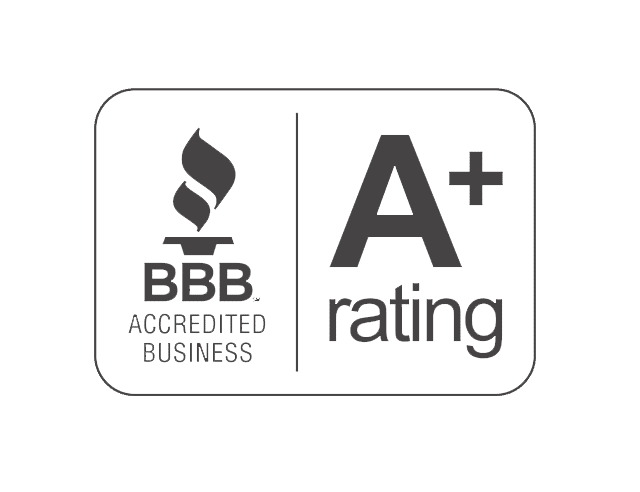Settle Your IRS Tax Debt for Less Than You Owe
Offer in Compromise
Dealing with overwhelming IRS tax debt can feel like an impossible burden. You may be facing mounting penalties, interest, and the constant threat of aggressive collection actions. Fortunately, the IRS offers a powerful debt resolution program called the Offer in Compromise (OIC). This program allows eligible taxpayers to settle their total tax liability for a reduced amount.
What is an Offer in Compromise (OIC)?
An Offer in Compromise is an agreement between you and the IRS that resolves your tax debt for less than the full amount you owe. The IRS will consider an OIC when it determines that collecting the full amount is not possible or would cause significant financial hardship. The goal is to reach a settlement amount that reflects your “Reasonable Collection Potential” (RCP) which is a calculation based on your ability to pay, the value of your assets, your current income, and your essential living expenses.
The IRS will generally accept an OIC if they believe it is the most they can expect to collect in a reasonable period. The process requires careful preparation and negotiation, which is where having a team of dedicated tax professionals is invaluable.
Who is Eligible for an OIC?
The IRS has strict criteria for who can qualify for an OIC. You are a potential candidate if:
You cannot pay your full tax liability. You must demonstrate a genuine inability to pay your entire tax debt.
You have filed all required tax returns. The IRS will not consider your offer unless you are in full compliance with your filing obligations.
You have made all estimated tax payments and federal tax deposits. If you are a business owner or a self-employed individual, you must be current with all your payment requirements.
Additionally, you cannot be in an open bankruptcy proceeding. The IRS may also reject your offer if they believe you have sufficient income and assets to pay the debt in a different way, such as an Installment Agreement.
How Our Team Approaches the OIC Process
The OIC is not a simple form you can fill out. It requires meticulous attention to detail and a deep understanding of IRS formulas and negotiation tactics. Our seasoned team, which includes former IRS Revenue Officers, understands exactly what the IRS is looking for. Our process includes:
Free Consultation & Financial Analysis: We begin with a thorough review of your financial situation. We will look at your income, expenses, assets, and liabilities to determine if you are a strong candidate for an OIC.
Strategic Documentation: We gather all necessary financial documents to build a compelling case. This includes proof of income, bank statements, asset valuations, and a detailed breakdown of your living expenses.
Offer Calculation & Preparation: We will calculate your “reasonable collection potential” using the same formulas the IRS uses. This ensures our offer is fair and realistic. We then prepare and submit your formal OIC package, ensuring it is complete and error-free.
Expert Negotiation: Once submitted, we will communicate directly with the IRS on your behalf. We will handle all follow-up requests and address any concerns the IRS officer may have, utilizing our experience to negotiate the most favorable settlement possible.
Achieving Resolution: Once the offer is accepted, we will guide you through the final steps, including making the agreed-upon payment and ensuring the IRS account is properly closed.

The Three Grounds for an OIC
1. Doubt as to Collectibility
This is the most common reason for an OIC. It means the IRS believes you cannot afford to pay your tax debt in full. The offer amount is based on what the IRS can reasonably expect to collect over a set period. Our job is to show the IRS that your income and assets are not sufficient to pay the debt in its entirety.2. Doubt as to Liability
This is for situations where you believe you do not actually owe the tax debt. For example, if the IRS made an error in their assessment. This is less common but can be an effective way to resolve a tax dispute.3. Effective Tax Administration (ETA)
This option is for taxpayers who have the ability to pay their debt but doing so would cause them significant economic hardship. Examples include a serious medical condition, an impending divorce, or other circumstances that would prevent you from meeting basic living expenses if you paid the full amount.Common Questions About an Offer in Compromise
Five IRS Offer in Compromise Tips and Steps to Attain Tax Freedom

Ready to Explore Your Options?
Don’t let the weight of tax debt control your life. Our team of experienced tax professionals has a proven track record of successful OIC negotiations.
Contact Tax Relief Advisers today for a free consultation at 877.501.2220 and take the first step toward a financial fresh start.
Here are some additional frequently asked questions
How do I get an Offer in Compromise approved?
The process is somewhat complicated and requires knowledge of IRS guidelines. Age, income, expenses, health, actions of a spouse, work history, divorce, and assets are all taken into account by the IRS. Essentially, an OIC is accepted if the IRS thinks they cannot, or should not collect the tax. There are legitimate things you can do to improve your chances of getting an OIC, but you need to know the rules.
You cannot plan for an OIC, it is a violation of the IRS regulations. You cannot hide assets, nor transfer assets to another party. It may be wise to seek the help of a professional.
The IRS has a link for an OIC pre-qualifier, but it leaves out many components. You can find it here http://irs.treasury.gov/oic_pre_qualifier/
Is an Offer in Compromise always the best option?
The simple answer is no. An Offer in Comprise may not be the best option. Filing an OIC is technical. Doing it wrong, or unknowingly thinking you are eligible can cost you time and money, not to mention the psychological toll of dealing with a problem that will not go away.
Some considerations:
Collection Statute Expiration Date (CSED). This is the statute of limitations on your debt. The IRS has ten years from the time of assessment of the tax delinquency to collect, and an OIC tolls the statute of limitations. Depending on where you are in relation to your CSED date, an OIC might cause a harmful delay.
Bankruptcy in some cases may be a better option. However, you need to understand what can be discharged. It is the three-two rule which pertains to when the tax was assessed, and when were the returns filed. All tax returns must be filed before you can claim bankruptcy.
A partial Payment Plan or Non-Collectible status can often be better options than OIC. With a small payment or no payment at all, you can ‘run’ the statute of limitation without an OIC.
Companies are telling me I can settle for ‘pennies on the dollar’ Is this true?
It is buzz phrase used to market to people who are in a desperate situation. Successful Tax Resolution Experts hate the phrase. It is possible to settle for pennies on the dollar, but your circumstances must be right. An Offer in Compromise can be a complex process. You need a clear and thorough evaluation before you waste time.
If someone tells you pennies on the dollar, get it in writing!
Can I file for an Offer in Compromise if I am in bankruptcy?
No. If you are in bankruptcy the bankruptcy court controls everything. You cannot do anything relating to your finances without the approval of the bankruptcy court.
Is Fresh Start and Offer in Compromise the same thing?
No. The Fresh Start Program amended several different IRS programs, including OIC. But the Fresh Start Program is not a resolution in and of itself. Its function was to make tax dues relief easier.
Some of the things the Fresh Start Program did:
Extend the installment repayment plan from 60 months to 72 months.
Provided for a streamline payment plan that requires limited financial documentation.
Raised the amount owed to qualify for a streamline payment plan from $25,000 to $50,000
Allows for penalty abatement in some cases.
Made the OIC process easier.
Can I get an Offer in Compromise for my state taxes?
Possibly, but all states have their own rules. Unfortunately, there is no uniformity. States can be more difficult to deal with than the IRS. When you call the State Department of Revenue you can get a person with any level of competency.
In some states, you can only submit an OIC after the IRS approves an OIC. States will usually allow you to use IRS forms when submitting an OIC to them. So, as big and bureaucratic as the IRS is they have guidelines that are uniform.
Do I have to file all my tax returns before submitting an Offer in Compromise?
Yes. You have to be compliant. That means all your returns have been filed up to date. For self-employed people, you must also be current on paying your estimated quarterly payments.
If I get an Offer in Compromise what do I have to do going forward?
File your tax returns on time and pay any tax due for the next five years. If you don’t, the IRS can default your OIC settlement and you are back to square one. If the IRS is going to waive off portions of your debt they don’t want to see you right back in the same situation.
Should I try an Offer in Compromise on my own?
It is estimated that taxpayer submitted offers are accepted 14% of the time. This number goes up dramatically if done by an experienced firm. If your case is simple and you understand the process and forms, take a shot. You can find all the forms under IRS.gov Take note that an OIC may not be your best option.
If you want to go it alone here are some documents to get you started. Form 656 booklet that goes into detail about the OIC process https://www.irs.gov/pub/irs-pdf/f656b.pdf. Form 433-OIC financial document you will need in conjunction with the 656. https://www.irs.gov/pub/irs-pdf/f433a.pdf. Form 433B-OIC for business https://www.irs.gov/pub/irs-pdf/f433b.pdf.
If I am submitting my Offer in Compromise on my own are there documents I need to provide?
Here is a short list of items you might need to provide:
Paystubs
Bank statements
Utility bills
Car payment
Health insurance costs
Proof of payment of Alimony or Child Support
Auto insurance statement
Any court ordered payment
Rent or mortgage payment
Property tax bill
Property insurance bill
Renter’s insurance bill
Rental agreement
Proof of any other payment for living expenses
Divorce decree
Verification of retirement accounts
Verification of social security or pension received
Life insurance information
If I hire a Tax Resolution Specialist what will it cost?
The cost can vary considerably. The overall complexity of your case is the main factor, and different companies charge differently. A word of caution; cheapest is usually not the best. You want to hire someone who charges fairly but equally important is they get the job done.
Costs can run in the range of $1,500 to $10,000, and up.

